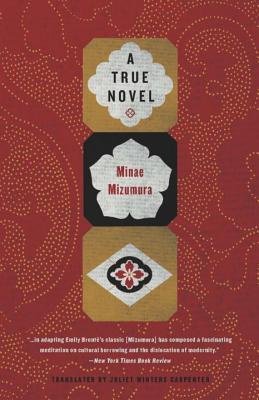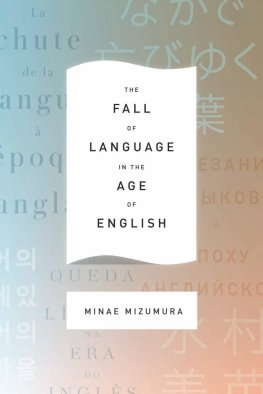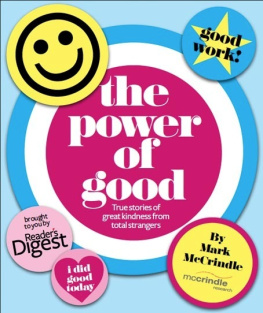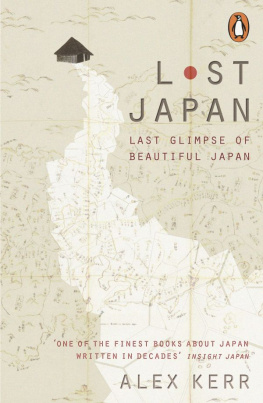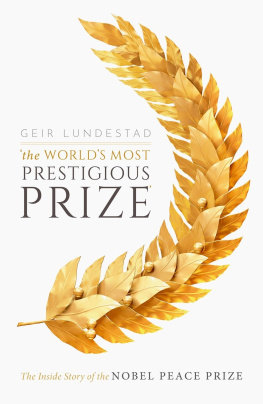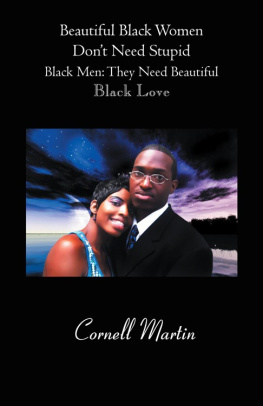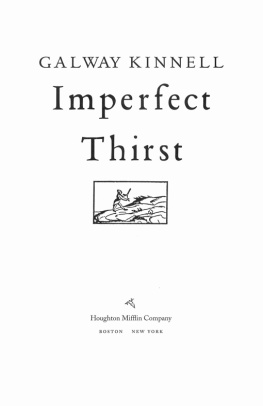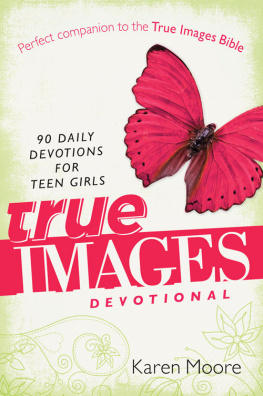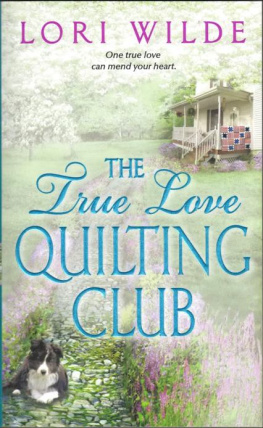Minae Mizumura - A True Novel
Here you can read online Minae Mizumura - A True Novel full text of the book (entire story) in english for free. Download pdf and epub, get meaning, cover and reviews about this ebook. year: 2013, publisher: Other Press, genre: Prose. Description of the work, (preface) as well as reviews are available. Best literature library LitArk.com created for fans of good reading and offers a wide selection of genres:
Romance novel
Science fiction
Adventure
Detective
Science
History
Home and family
Prose
Art
Politics
Computer
Non-fiction
Religion
Business
Children
Humor
Choose a favorite category and find really read worthwhile books. Enjoy immersion in the world of imagination, feel the emotions of the characters or learn something new for yourself, make an fascinating discovery.
- Book:A True Novel
- Author:
- Publisher:Other Press
- Genre:
- Year:2013
- Rating:3 / 5
- Favourites:Add to favourites
- Your mark:
- 60
- 1
- 2
- 3
- 4
- 5
A True Novel: summary, description and annotation
We offer to read an annotation, description, summary or preface (depends on what the author of the book "A True Novel" wrote himself). If you haven't found the necessary information about the book — write in the comments, we will try to find it.
A True Novel — read online for free the complete book (whole text) full work
Below is the text of the book, divided by pages. System saving the place of the last page read, allows you to conveniently read the book "A True Novel" online for free, without having to search again every time where you left off. Put a bookmark, and you can go to the page where you finished reading at any time.
Font size:
Interval:
Bookmark:
Minae Mizumura
A True Novel
A True Novel: Volume I
Preface


TO BE A novelist by occupation or a novelist by callingthese are two different things.
IN THE COURSE of our lives, we are asked to fill out a surprising number of forms: embarkation and disembarkation cards, DVD-rental membership applications, requests for credit cards. These forms typically come with blank lines on which one is expected to write ones Name, Date of Birth, Addressand Occupation. Faced with the line marked Occupation, I always hesitate. Obviously, I could easily write down novelist, but the word Occupation reminds me that I have published only two novels so far and that their royalties arent enough for me to make ends meet. As I scribble self-employed in the blank spaceembarrassed by my handwriting, which is a mess, not that anybody cares nowadaysI wonder if Ill ever be able to claim to be a novelist with a clear conscience. I can only imagine how gratifying it would be if I could actually earn my living writing novels.
But such an ambition merely concerns occupationthe business side of writing. It is fundamentally no different from that of, say, someone opening a small laundry downtown, worried about the future of his fledgling business. Anyone who somehow has to make a living shares this worry, yet for people who write novels it isnt what matters most; in their case, ones calling matters more.
Lets say in ten years time I have written numerous novels and am doing quite well for myself. I doubt if the day will ever come, but lets just suppose that it does. Would I then be satisfied? No, I dont think so. Most likely, I would still want to know if it was my mission on earth to become a novelist. However prosaic a writers work or person may be, a writer is also an artist, and every artist must ask himself whether he was born to do what he does, rather than whether he can live by doing it. Behind the question is a perennialindeed obsessiveneed to believe that in some mysterious way one is destined to be an artist. A novelist is particularly prone to this concern. To become a painter, a dancer, or a musician, two things are necessary: an apparent gift and hard training. In contrast, nothing seems easier than becoming a writer. Anyone can string a few sentences together and turn out a novel practically overnight. Who becomes a novelist and who does not seems almost arbitrary. Hence the strong desire to hear a resounding voice from on high telling one that one was indeed destined to write.
A MIRACLE HAPPENED to me two years ago.
It was when I was staying in Palo Alto in northern California, writing my third novel, or, more precisely, trying to write it. I lacked confidence, and progress was slow. Then, out of the blue, I was made a gift of a story, a story just like a novel. What is more, the story was meant for me alone. It concerned a man whom I knew, or rather whom my family knew, in New York at one time. This was no ordinary man. Leaving Japan with nothing, he arrived in the United States and made a fortune there, literally realizing the American dream. His life had taken on the status of legend among Japanese communities in New Yorkyet no one knew that hed had another life back in Japan, one marked by the poverty-stricken period that followed World War II. The tale of that life would almost certainly have disappeared, lost in the stream of time, if a young Japanese man who happened to hear it had not then crossed the Pacific and hand-delivered it to me in Palo Alto, like a precious offering. Of course, the preciousness of his offering was something the young man never knew. As far as he could tell, he merely traveled on his own initiative, sought me out of his own accord, then went away when hed told the story he wanted to tell. Yet I felt as if some invisible power had arranged to bring this messenger to me.
He took all night to tell me the story. Outside, the heaviest rainstorm in California for decades raged, trapping us in the house. The angry power of nature must have affected my nerves: when he had finished, I was in shock. It felt uncanny that I should have known someone who had lived such a lifeand that, by a strange series of coincidences, his tale should have been delivered to me, and me alone.
It felt like a voice from on high.

THE REAL PROBLEMS started afterward. My doubts about my calling had been allayed, only to be replaced by the difficulties inherent in writing a modern novel in Japanese based on the story Id been given. For reasons that will become apparent later, the initial elation that accompanied what came almost as a revelation did not last. As I went on writing, I felt daunted, afraid that this novel was something I shouldnt be writing after all, and half-convinced that the attempt would fail. But once the novel started to take shape, I came to realize none of this mattered; that what I would leave behind was only a small boat on a vast ocean of literature. And with this realization, I reached a point where I felt at ease with my work.
If this novel finds any readers, I shall feel blessed.
Prologue
On Long Island
I WAS STILL IN high school in the United States at the time. Counting back, I must have been in what they call eleventh grade. My sister, Nanae, two years older, had already started classes at a music conservatory in Boston, leaving my parents and me behind in our suburban Long Island home. Four, maybe five years had gone by since my fathers company had sent us to New York, yet, even so, I still could not feel at home, either in the new country or the new language. I knew New Yorks summers, the sun blazing down on green lawns, and its winters, snowflakes fluttering onto my eyelashes; but the days came and went, and I went on feeling that I wasnt really in America.
I lived in three separate worlds during those years.
The first was the world of school, which I only attended physically. Nearly all the other students were American. Every morning at eight, a small figure would walk into the main entrance of the red-brick building with the Stars and Stripes flying high above it; every afternoon around three, the same small figure would emerge. Depending on the season, it might be wearing a sleeveless dress and sandals, or a hooded coat and fur-lined boots, but that was as much of me as was there. Thrown into an environment so different from the one I knew, I shut down, setting myself against it with typical adolescent obstinacy, making no effort whatever to become part of it.
In contrast, the second world existed only in my mindand the less connected I felt with America, the richer it became. It grew even richer after my sister left for her music school and my mother started working at a Japanese company in Manhattan, leaving the entire house to me on school days, from attic to basement. I would sit on one end of a sofa bracketed by a pair of lamps with pale silk shadeslamps made of Satsuma vases that, in my passion for things Japanese, I had pestered my mother to buy at the Takashimaya department store in the cityturn on the light closer to me, and lose myself in one of the Japanese novels our parents had shipped out for us, reading until it got dark, while my sole companion, an overweight collie named Della wed brought with us on the plane, lay quietly at my feet. These books were some of the fifty-plus volumes in a set entitled Contemporary Japanese Literature
Font size:
Interval:
Bookmark:
Similar books «A True Novel»
Look at similar books to A True Novel. We have selected literature similar in name and meaning in the hope of providing readers with more options to find new, interesting, not yet read works.
Discussion, reviews of the book A True Novel and just readers' own opinions. Leave your comments, write what you think about the work, its meaning or the main characters. Specify what exactly you liked and what you didn't like, and why you think so.

